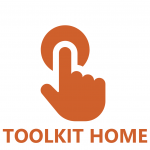
 |
Module 1: Background to this Toolkit
|
This resource was developed with members of the HIV and housing communities in BC with two goals in mind:
- To increase the wellness of people living with HIV who are in need by improving their ability to navigate BC’s housing system
- To inform housing and HIV service providers in supporting their HIV-positive clients to access and maintain housing.
Housing plays a major role in health. It can be a source of comfort or stress, impacting individuals’ physical, mental, emotional, and spiritual well-being.
Living with HIV can add extra challenges for housing-related health because of:
- stigma and discrimination, which can affect access to safe, appropriate housing
- unstable employment due to health, which results in a lower income
- difficulties getting to necessary health and social services that are concentrated in urban centres
- physical or cognitive changes that affect the ability to live independently over time
Anyone affected by HIV knows about these and other challenges, but researchers, policy-makers, and service providers are still coming to a full understanding of the complex dynamics of health, housing, and HIV.
People have different ideas about home and how they want to live. Whether it’s a house, apartment, tent, or shelter, housing has an effect on everyone. Often people have limited choice when it comes to housing, leaving them in a living situation that is not right for them and that they would like to change.
Positive Living, Positive Homes: Studying Housing and Health for People Living with HIV
Positive Living, Positive Homes is a community-based research study whose active data collection phase took place from 2015 to 2017 in three BC sites: Prince George, Kamloops, and Greater Vancouver.
Take a look at this short video to learn more about the Positive Living, Positive Homes study and findings:
What supports Housing and Health for PLHIV in BC? Positive Living, Positive Homes from PANBC on Vimeo.
Researchers interviewed 99 people living with HIV to ask about how housing and health interact for them on a daily basis and over time. A total of 43 service providers and policy-makers in the HIV and housing sectors were also interviewed about the services and policies that support the housing needs of people living with HIV and what could be done better.
This qualitative study centred on stories more than numbers or statistics. The findings will help people with lived experience, community stakeholders, policy-makers and the general public understand more about the many challenges and successes experienced by people living with HIV as they navigate BC’s housing system and feel its impacts on their health. To communicate the findings, we have shared pieces of participants’ stories while protecting confidentiality.
The overall study findings are not surprising: Safe, affordable, adequate, and appropriate housing is critical to good health for people living with HIV. Programs and policies that provide them with genuine housing options, allowing them to decide what is best for them, are key.
The participants’ willingness to share their experiences with housing and health provided rich details about why housing challenges happen in certain situations and how people overcome those challenges when provided with the right tools and resources.
Now that we know more about why and how things happen, we can take action to improve housing and health for people living with HIV. This toolkit is one of those actions.
 |
 |

